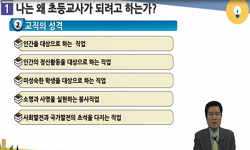This study aims to examine the effects of mathematical activity based on cooperative learning model of Learning Together on the measuring ability of the young children s Study subjects were established in the following procedure. Out of 50 5 year-old ...
http://chineseinput.net/에서 pinyin(병음)방식으로 중국어를 변환할 수 있습니다.
변환된 중국어를 복사하여 사용하시면 됩니다.
- 中文 을 입력하시려면 zhongwen을 입력하시고 space를누르시면됩니다.
- 北京 을 입력하시려면 beijing을 입력하시고 space를 누르시면 됩니다.
https://www.riss.kr/link?id=A103602207
- 저자
- 발행기관
- 학술지명
- 권호사항
-
발행연도
2014
-
작성언어
-
- 주제어
-
KDC
375
-
자료형태
학술저널
-
수록면
22-47(26쪽)
- 제공처
-
0
상세조회 -
0
다운로드
부가정보
다국어 초록 (Multilingual Abstract)
Study subjects were established in the following procedure.
Out of 50 5 year-old young children s enrolled at B kindergarten located at Chungnam, 25 young children s were allocated into the experimental group and 25 young children s into the control group. Examination tool used for this study was ‘Measuring Ability Test Tool’ of Hee Young Jeon (2001). Preliminary test was carried out with 25 young children s in experimental group and 25 young children s in control group.
To examine the measuring ability of control group who received planned education activities and that of experimental group who received mathematical activities based on the cooperative learning model of Learning Together, I carried out t-test and χ2 test for comparison of preliminary test and post-test between groups, and utilized SAS 9.2 program for this.
Conclusion of this study is as follows.
First, mathematical ability based on cooperative learning model of Learning Together was found to have positive effects on the ability of young children to measure using non-standard unit among measuring skill of young children s
Second, mathematical ability based on cooperative learning model of Learning Together was found not to influence the ability to directly compare and to select the non-standard unit among measuring skill of young children s
In light of this, mathematical ability based on cooperative learning model of Learning Together was found to have positive effects on ‘ability to measure using non-standard unit’ among measuring ability of young children s Since this ability requires thoughts more difficult than the ability to directly compare and to select non-standard unit, mathematical activity based on cooperative learning model of Learning Together can be regarded to have positive effects on measuring ability of young children s.
This study aims to examine the effects of mathematical activity based on cooperative learning model of Learning Together on the measuring ability of the young children s
Study subjects were established in the following procedure.
Out of 50 5 year-old young children s enrolled at B kindergarten located at Chungnam, 25 young children s were allocated into the experimental group and 25 young children s into the control group. Examination tool used for this study was ‘Measuring Ability Test Tool’ of Hee Young Jeon (2001). Preliminary test was carried out with 25 young children s in experimental group and 25 young children s in control group.
To examine the measuring ability of control group who received planned education activities and that of experimental group who received mathematical activities based on the cooperative learning model of Learning Together, I carried out t-test and χ2 test for comparison of preliminary test and post-test between groups, and utilized SAS 9.2 program for this.
Conclusion of this study is as follows.
First, mathematical ability based on cooperative learning model of Learning Together was found to have positive effects on the ability of young children to measure using non-standard unit among measuring skill of young children s
Second, mathematical ability based on cooperative learning model of Learning Together was found not to influence the ability to directly compare and to select the non-standard unit among measuring skill of young children s
In light of this, mathematical ability based on cooperative learning model of Learning Together was found to have positive effects on ‘ability to measure using non-standard unit’ among measuring ability of young children s Since this ability requires thoughts more difficult than the ability to directly compare and to select non-standard unit, mathematical activity based on cooperative learning model of Learning Together can be regarded to have positive effects on measuring ability of young children s.
동일학술지(권/호) 다른 논문
-
- 한국포괄영유아아동교육지원학회
- 현자명(Hyun Ja Myung), 김현정(Kim Hyeon Jeong)
- 2014
-
- 한국포괄영유아아동교육지원학회
- 임혜란(Hye Ran Im), 오은순(Enu soon Oh)
- 2014
-
- 한국포괄영유아아동교육지원학회
- 도미숙(Suk Mi Do), 오은순(Enu soon Oh)
- 2014
-
교사개입유형이 협동적 조형 활동에서 유아의 또래 유능성과 정서조절능력에 미치는 영향
- 한국포괄영유아아동교육지원학회
- 황정남(Jung nam Hwang), 송수희(Su hee Song)
- 2014




 스콜라
스콜라



